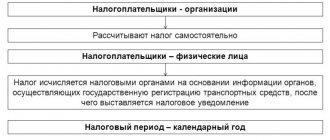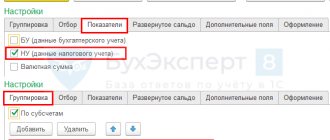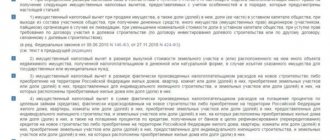New rules for crediting and returning overpayments
From October 1, 2021, the provisions of Federal Law No. 325 of September 29, 2019 will come into force, which simplify the procedure for offset or refund of overpayments of taxes. Until October 1, tax authorities can redistribute overpaid taxes only within the budget of one type. Federal tax goes to the federal budget, regional tax goes to the regional budget, local tax goes to the local budget. For example, by overpaying VAT, a federal tax, you cannot pay off a debt on property tax, a local tax.
Starting from October, it will be possible to offset overpayments against future tax payments or pay off debts for another tax without reference to the budget level. For example, due to the income tax overpaid to the federal budget, it is possible to pay off arrears or a fine to the regional budget for transport tax or to the local budget for land tax.
If there is a tax debt to any budget - federal, regional or local - it is impossible to return the overpayment of taxes in money. The debtor, due to the overpayment, is obliged to first pay off his obligations for taxes, fines and penalties (Clause 6 of Article 78 of the Tax Code of the Russian Federation).
The rules for offset and refund of overpaid insurance premiums remain the same. For example, overpayment of pension insurance contributions cannot be “spread” onto social or health insurance contributions (clause 1.1 of Article 78 of the Tax Code).
Check and pay taxes online
By INN and SNILS
By Tax document number
To search for taxes, enter your INN and/or SNILS.
We recommend checking both documents simultaneously. ?
To search for taxes and penalties in the GIS GMP system
?
To search for taxes and penalties in the GIS GMP system
To search for a tax, enter the Tax Document number or unique accrual identifier (UIN).
?
To check taxes and penalties on already issued Tax documents
* The search is carried out in the GIS GMP (taxes issued throughout Russia).
By clicking the “Search taxes” button, you consent to the processing of personal data, in accordance with the Federal Law of July 27, 2006 N152-F3 “On Personal Data”
How does overpayment of taxes occur?
Overpayment occurs due to errors either by the organization itself or by the tax authority.
Taxpayers themselves are wrong:
- when calculating tax. Accounting may make a mistake when calculating the tax base, applying the wrong tax rate, or not applying tax benefits and deductions;
- when filling out payment orders for the payment of taxes, penalties, and fines. Any error in the BCC or tax amount results in an overpayment for one tax and an underpayment for another.
Overpayment may occur due to advance payments. For example, a company transferred advances for income tax during the year, but at the end of the year the tax turned out to be less than the amount of the transferred advances. So the company overpaid income taxes.
Tax inspectors may mistakenly collect taxes twice. This occurs when a tax, fine or penalty is unilaterally written off from a current account. For example, the taxpayer has already transferred taxes, but the money has not yet reached the tax office. And the Federal Tax Service writes off the amounts without acceptance. Then there may be an overpayment.
Note! Overpayment of taxes must be recorded on the organization’s front card with the Federal Tax Service. If, for example, a company transferred taxes through a problem bank, but they did not go to the budget, it will not be possible to offset or return them.
The courts believe that recognition of the obligation to pay a tax as fulfilled does not give rise to the taxpayer’s automatic right to return or offset the amount of such tax.
They confirmed that the taxpayer does not have the right to compensate for his losses at the expense of the budget (Determination of the Supreme Court of the Russian Federation No. 307-KG18-10845 of August 8, 2021).
How to find out about an overpayment
Both the taxpayer himself and tax inspectors can find overpayments of taxes. You can order a reconciliation report from the tax office or check your transfers in your personal account on the Federal Tax Service website. Within five working days after submitting the documents, tax officials must issue a reconciliation report and send it to the taxpayer.
If the tax authorities were the first to discover the overpayment, they are obliged to notify the organization - within 10 working days they must send a written message and indicate the date the overpayment was discovered (clause 3 of Article 78 of the Tax Code of the Russian Federation). The date of discovery of the overpayment is the day when the inspector discovered the excess for a particular tax. Regardless of whether the tax inspectorate informed the taxpayer about the fact of an overpayment or not, the overpayment can be disposed of within three years from the date of occurrence.
Taxes to the budget for the taxpayer can be transferred by any other person - an organization, an entrepreneur or a citizen without the status of an individual entrepreneur (paragraph 4, paragraph 1, article 45 of the Tax Code). But only the taxpayer himself has the right to return the excess or offset the payment. Third parties cannot do this (paragraph 5, paragraph 1, article 45 of the Tax Code).
Procedure
After confirming your account on State Services, go to your personal account and do the following: go to the directory class=”aligncenter” width=”770″ height=”417″[/img]
and find there a tab with taxes,
then select “accept tax returns”
and select the type of service - electronic.
Next, you only need to click on the “Get service” button, since electronic document submission is already automatically selected. It is worth noting that the tax deduction declaration is issued for a period of one year. Therefore, this procedure is annual.
If you need to change something, you can always save the content as a draft on the website.
You will need to provide the following information:
- FULL NAME;
- Date of birth;
- Place of Birth;
- Passport data (series, number, date of issue, by whom);
- Residence address;
- Income information. Each employee can request this information from his employer for certain reasons. An electronic version must be attached to the application;
- Type of tax deduction. Here you need to decide which category you are in when filling out an application for a tax deduction.
After filling out the entire form, the document is supplemented with an electronic signature and sent for processing to the Federal Tax Service.
It is worth noting that you can make corrections to the document only before submitting the form.
It is important that after downloading the declaration, it will not be possible to mark it or make adjustments through the State Services portal.
How can you manage your overpayment?
If an organization or individual entrepreneur has identified an overpayment of taxes, then the excess can be offset against the debt, left in a personal account with the Federal Tax Service for future payments, or the money returned to the current account. Let's consider each point separately.
Credit for arrears
If there is arrears on other taxes, fees, fines, penalties, inspectors will first pay off the arrears to the budget through overpayments. The inspectorate independently decides which tax debt can be closed and informs the organization. But they can only dispose of overpayments that are no more than three years old.
An organization can independently submit an application for credit indicating a specific tax. It is advisable to reconcile the calculations with the budget before doing this. If the amount indicated in the application does not coincide with the data of the tax office, the tax authorities will return the application.
The tax office makes a decision on offset or refusal to offset overpaid amounts against arrears within 10 working days:
- from the moment the overpayment was discovered, if the organization did not apply to the inspectorate with an application for credit against a specific tax;
- from the date of receipt of an organization’s application for credit against a specific tax, if the organization has submitted such an application;
- from the date of signing the act of reconciliation of calculations with the budget, if the inspection and the organization carried out a reconciliation;
- from the moment the court decision comes into force, if the organization has achieved offset through the court;
- from the day following the day of completion of the desk tax audit, which took place without additional assessments;
- if a desk audit revealed violations - from the day following the day the decision entered into force.
Credit towards future payments
If there is no arrears, you need to send an application to the inspectorate for crediting money using the approved KND form 1150057. Applications for crediting taxes overpaid to regional budgets at the location of separate divisions of the organization can be submitted both to the tax inspectorate at the location of the organization and to the tax inspectorates at location of separate units.
The application deadline is within three years from the date of payment of the excess tax or contribution. The application must be accompanied by documents confirming the overpayment - a payment order or an updated declaration. The tax office must make a decision on the offset within 10 working days from the date of receipt of the application from the organization.
Overpayments cannot be counted against future payments of taxes, fees, penalties and fines by other taxpayers. Such offset of Tax Code is not provided (letter of the Ministry of Finance dated March 6, 2017 No. 03-02-08/12572).
Refund of overpayment
To return money to the current account, the organization submits an application in the KND form 1150058 within three years from the date of the overpayment. To make a decision, inspectors have 10 working days from the moment they receive the application or sign the reconciliation report. After 5 working days, tax authorities are required to inform the organization or individual entrepreneur about the decision made (clause 9 of Article 78 of the Tax Code). After a month, return the overpayment to your bank account. If the taxpayer made a mistake and provided incorrect details, the refund will be processed after clarification.
Refund of overpaid taxes is a right, not an obligation, of the taxpayer. An organization or individual entrepreneur can waive their right, which does not contradict paragraph 6 of Art. 78 of the Tax Code of the Russian Federation (letter of the Ministry of Finance of Russia No. 03-07-11/63803 dated December 11, 2014).
If the overpayment is more than three years old
An organization can offset or return an overpayment within three years from the date of payment of the excess tax amount. The payment date is calculated differently. For example, for VAT, which is paid without advance payments, the three-year period will be counted from the date of transfer of the tax. And for income tax, which provides for advance payments, the period will be calculated from the moment of filing the declaration.
If the organization missed the deadline for filing an application, you can go to court. When considering a case in court, the limitation period of 3 years will be calculated according to the norms of civil, and not tax legislation. And the countdown of the period does not start from the moment of payment of the excess amount, but from the moment when the organization learned or should have known about it (clause 1 of Article 200 of the Civil Code). But you will have to prove that you learned about the overpayment later than it occurred. And it's not that simple.
What types of tax deductions are divided into?
In the column for selecting the type of tax deduction there are the following positions:
- Standard. This option is provided to persons with disabilities, military personnel, as well as those who have not yet reached the age of 24, those who are in full-time education, or legal representatives of a citizen who has not reached the age of majority.
- Social. This includes charity, return of funds given for the treatment of themselves or relatives, and this service is also provided to citizens who can confirm data on the costs of their education or payment for the education of relatives. Additionally, this category includes voluntary pension contributions.
- Property. This type of service can be obtained for the purchase or construction of housing, or rather, for the territory allocated for construction. The refund can be issued either if the entire payment was made at once, or if the mortgage is still being paid. In the second situation, the total deduction amount is calculated based on the interest rate on the loan.
- Professional. This includes those who are individual entrepreneurs, but do not participate in other taxation programs, and also include scientific or creative employees who have copyright for something.
In addition to the above, there are other tax deduction categories, but these are the most popular ones. All required supporting documents must be scanned and also attached to the electronic application form.







